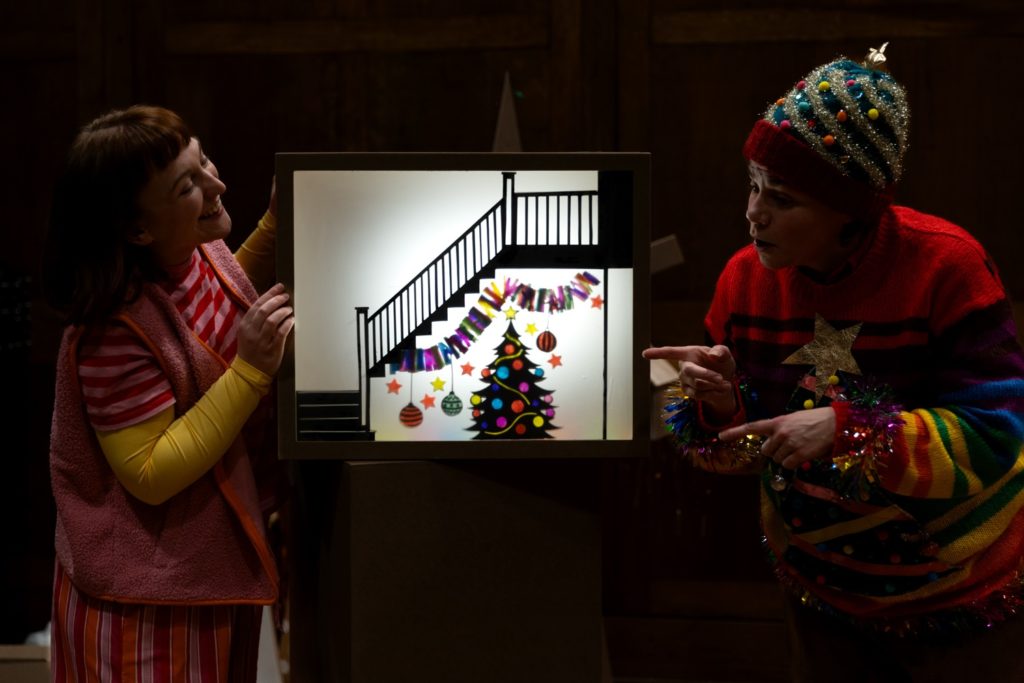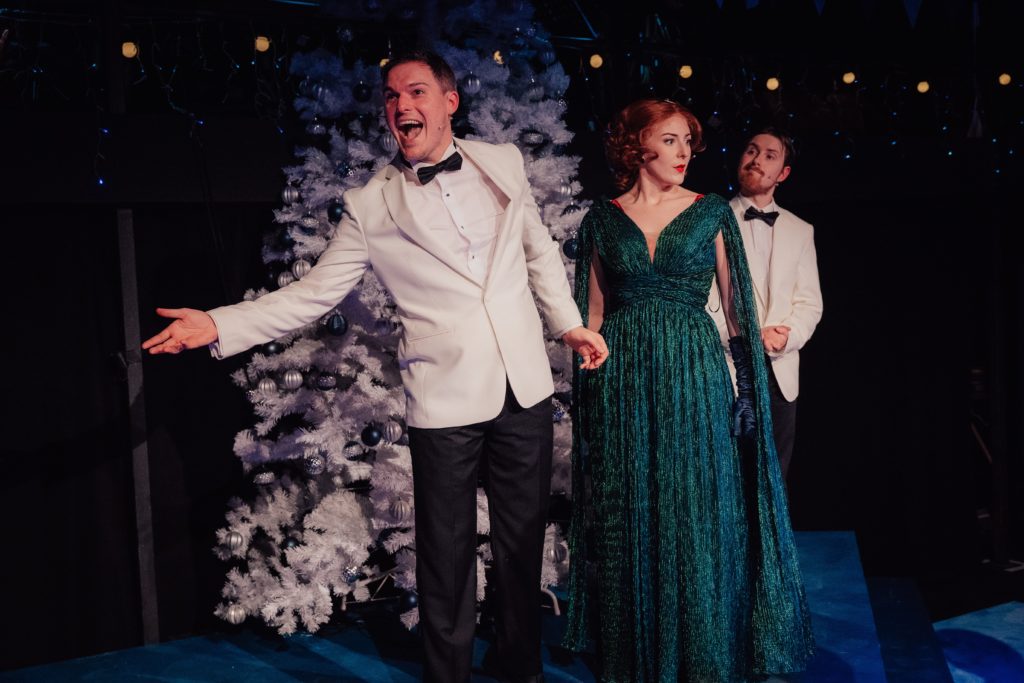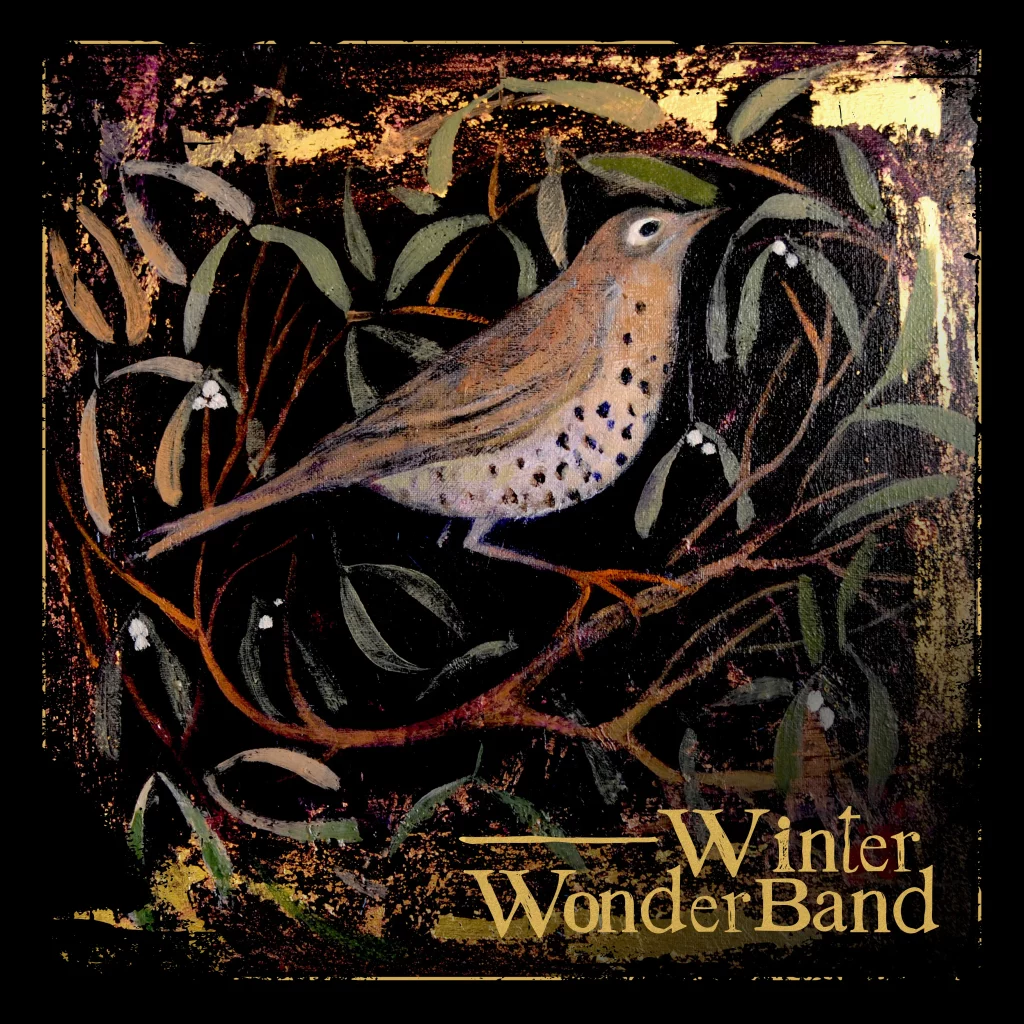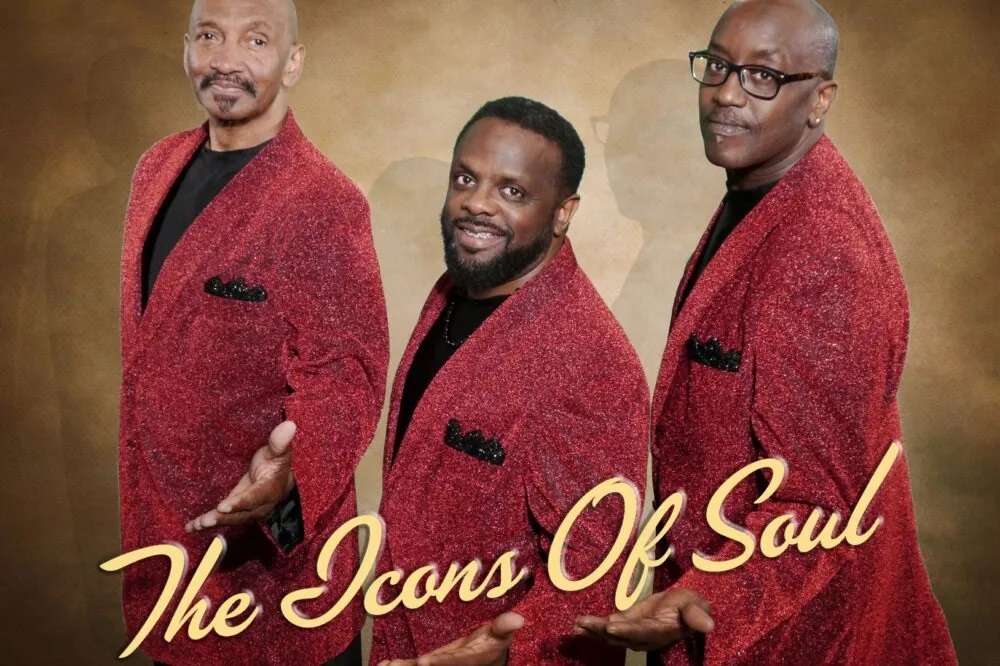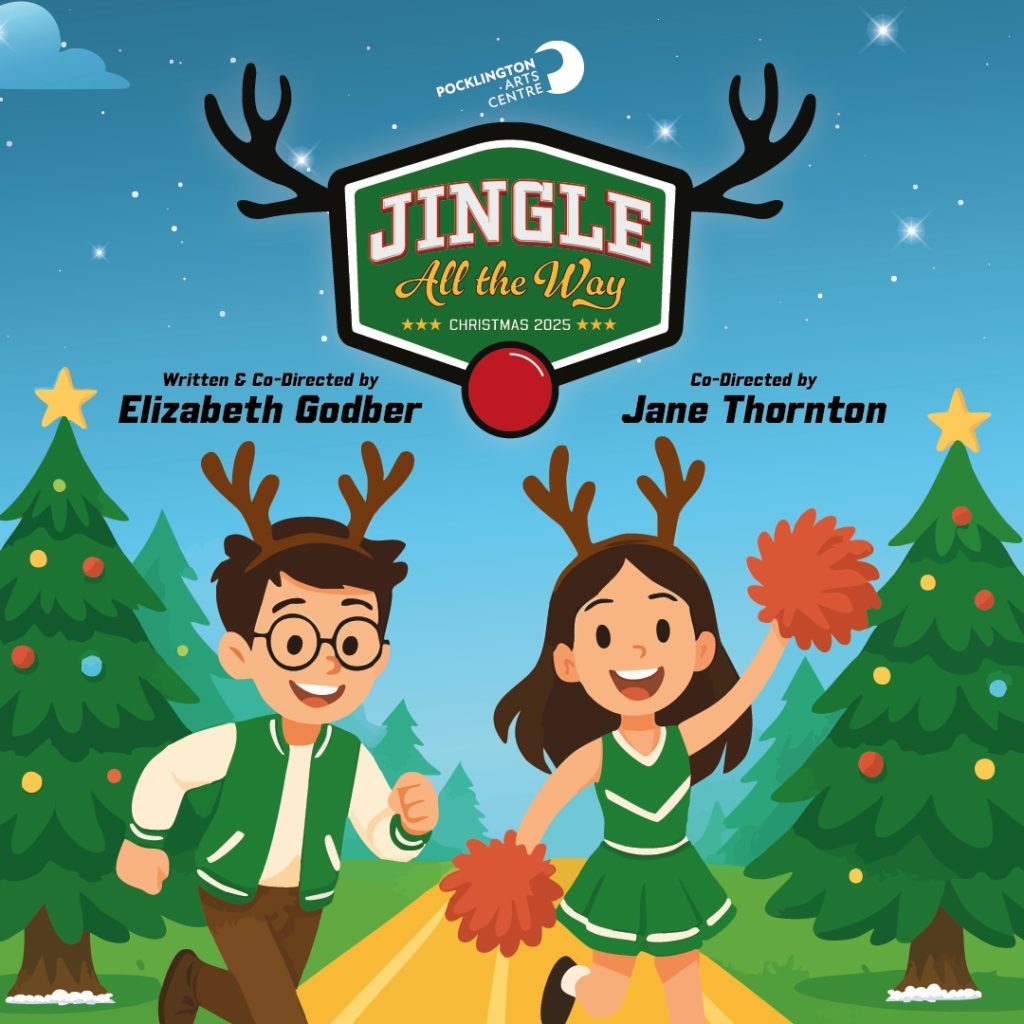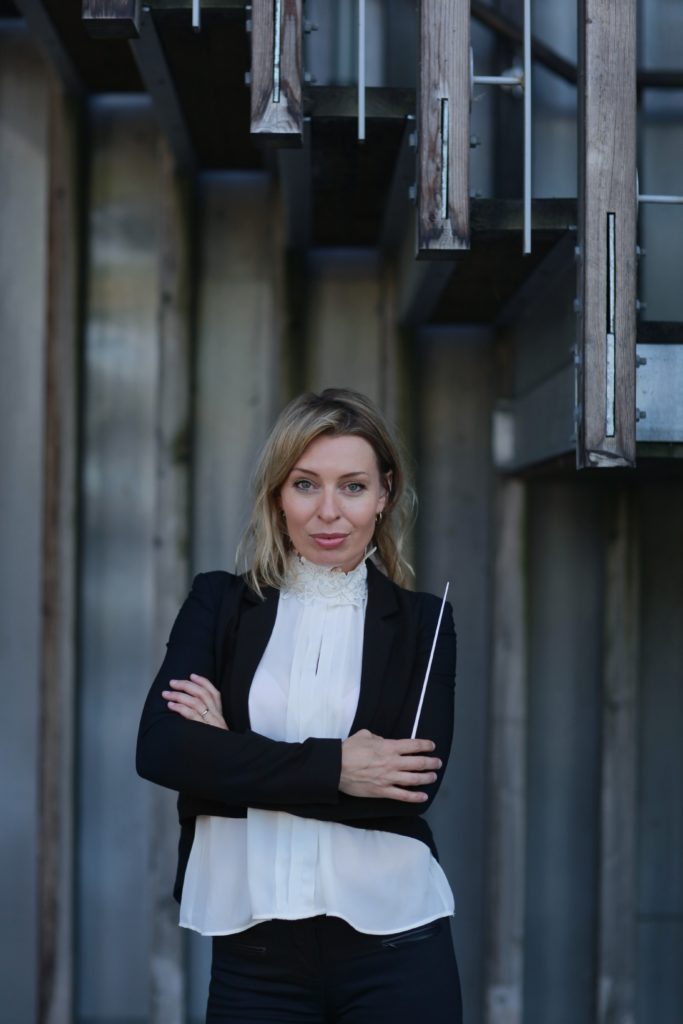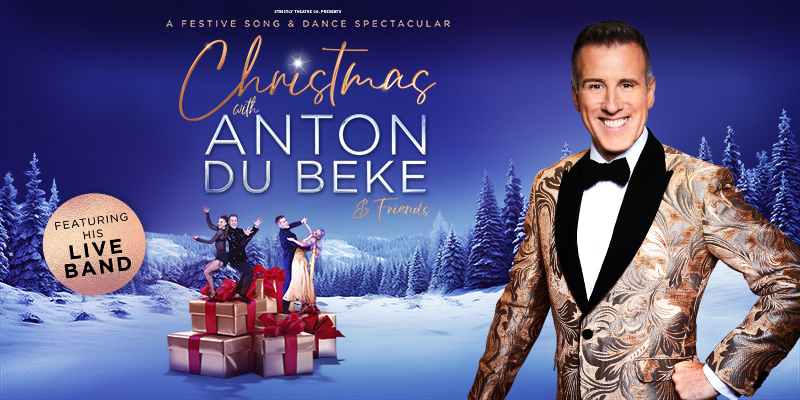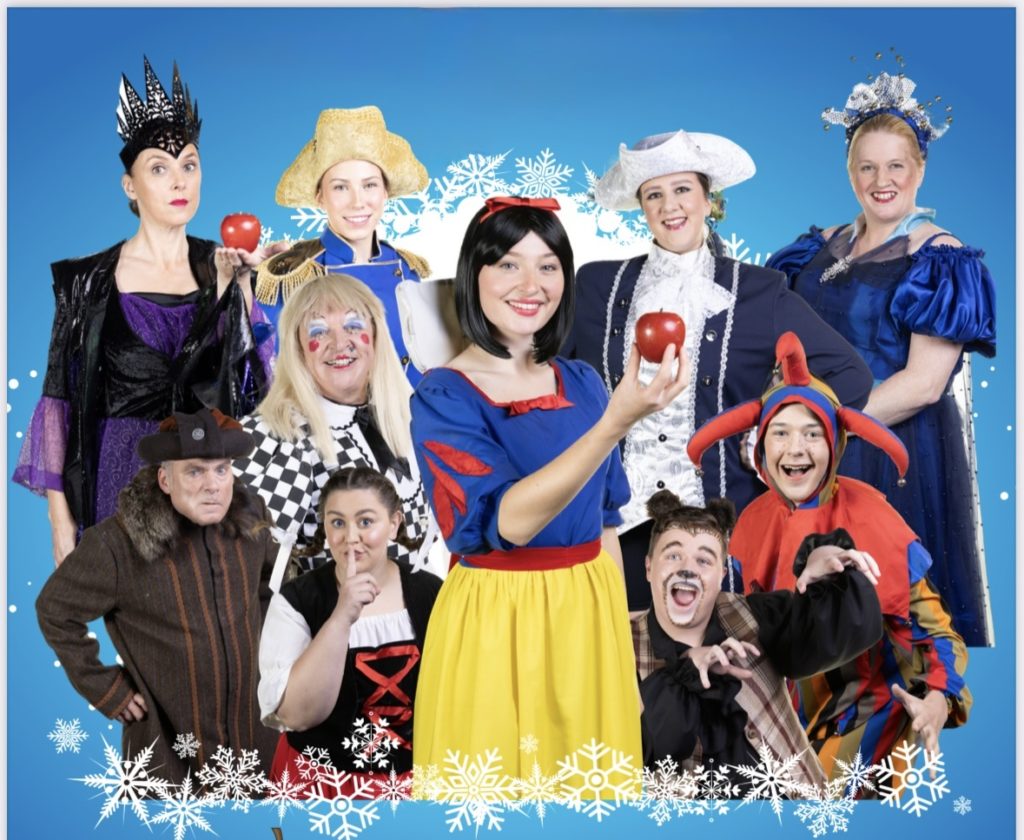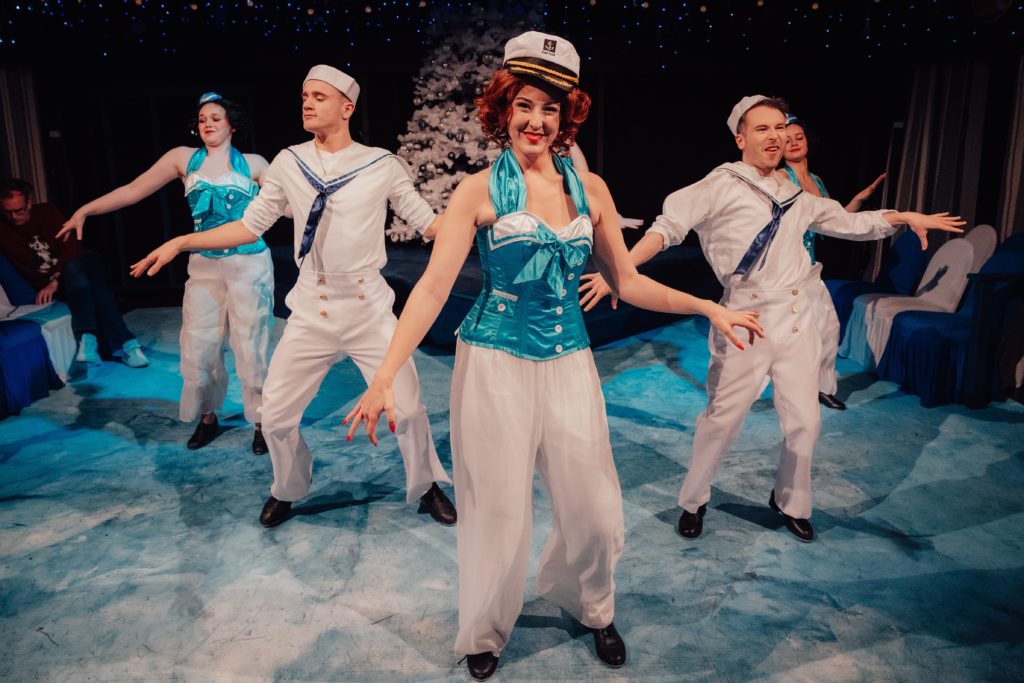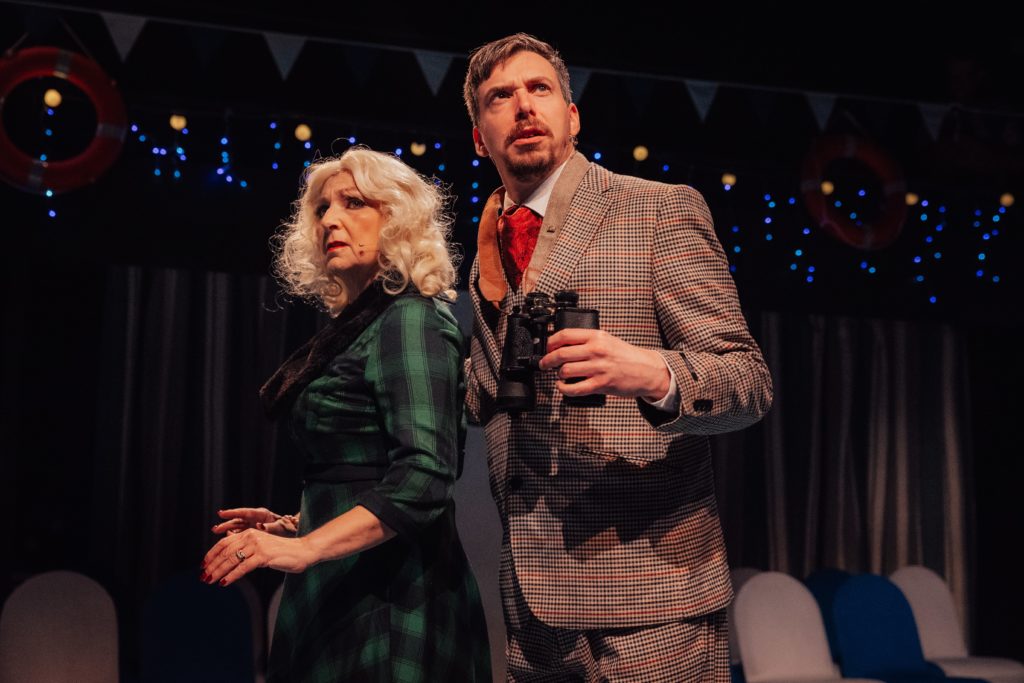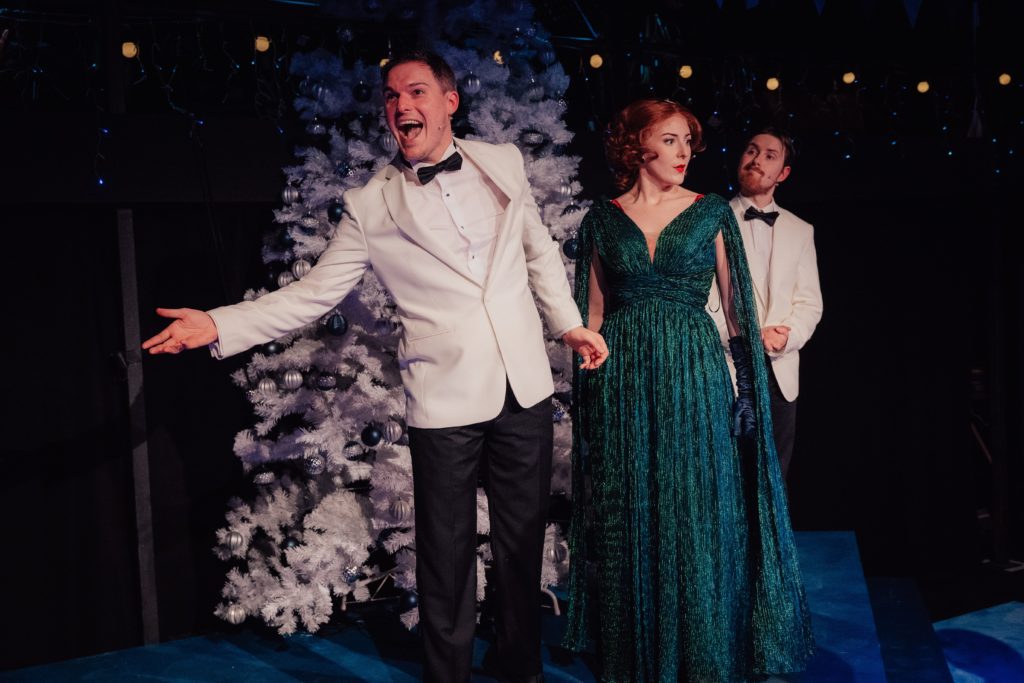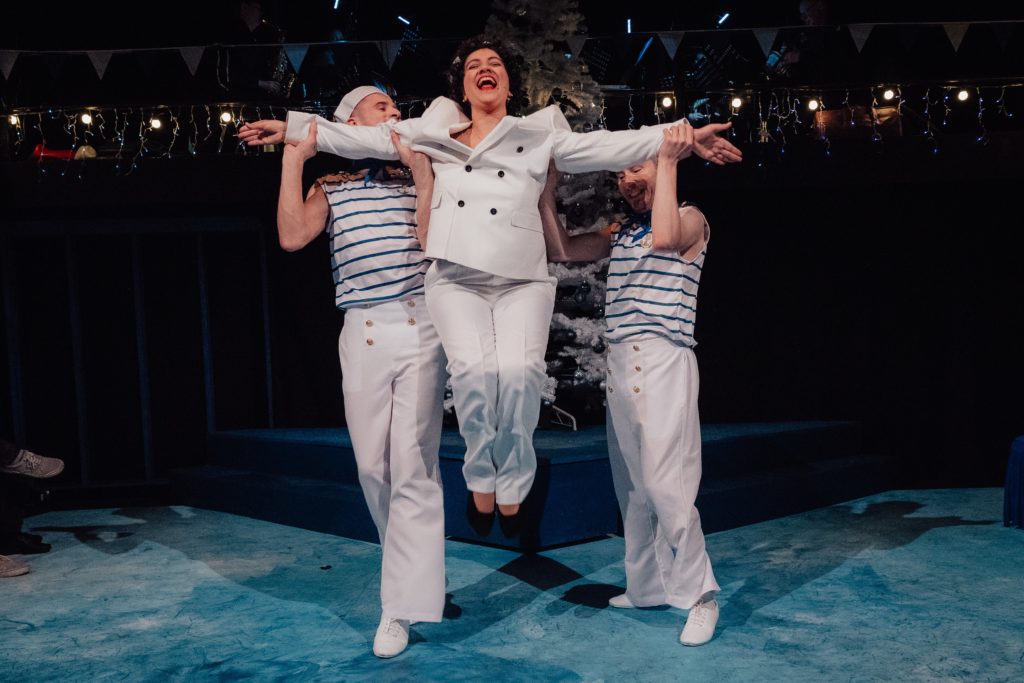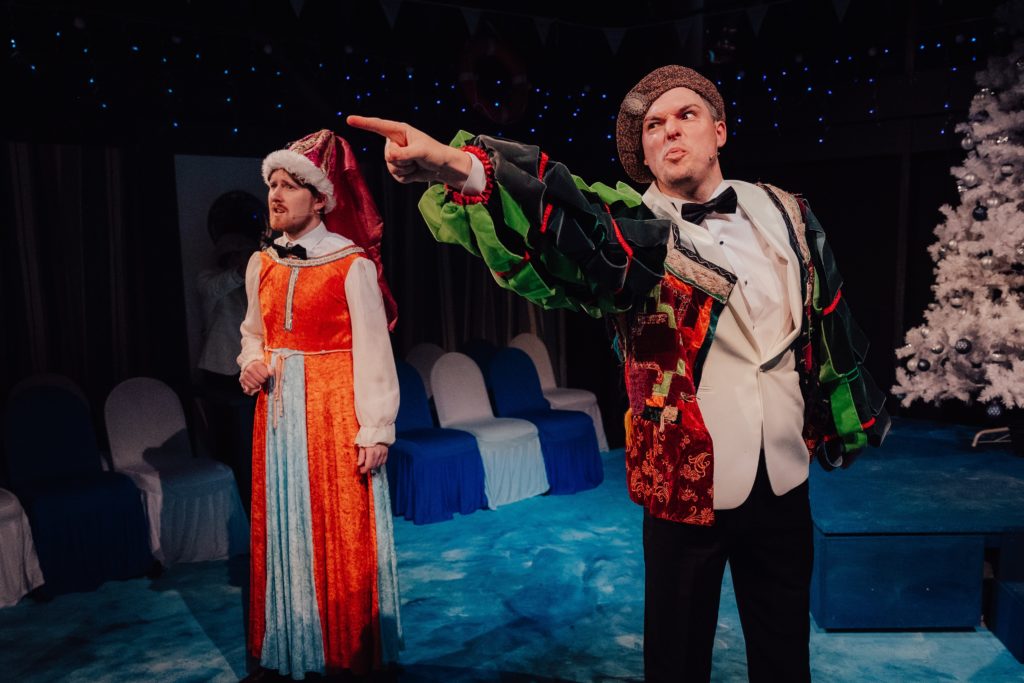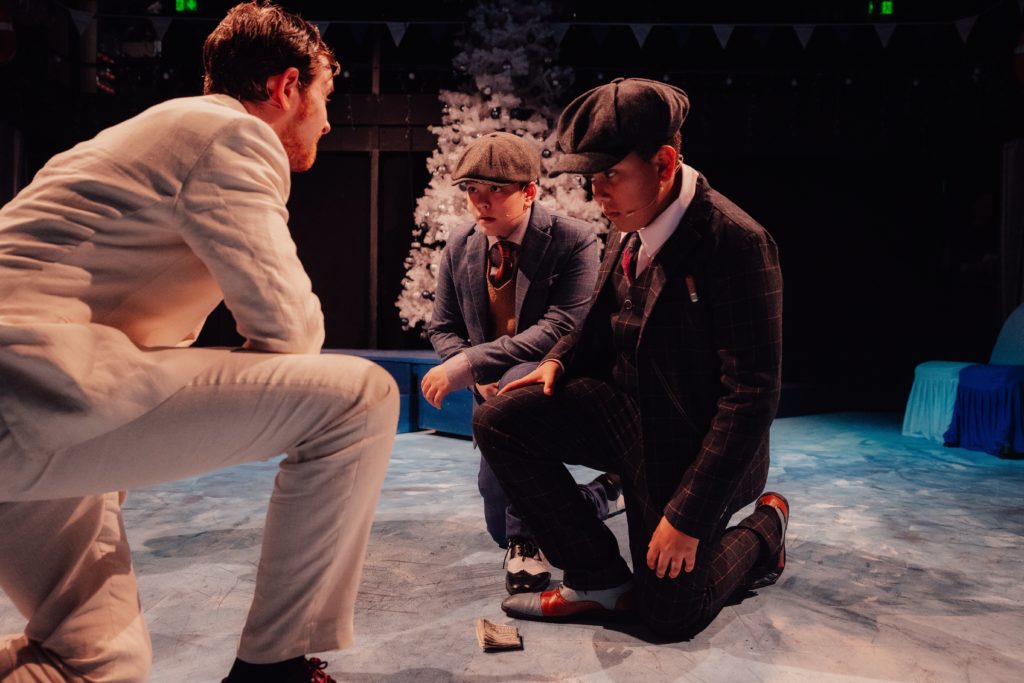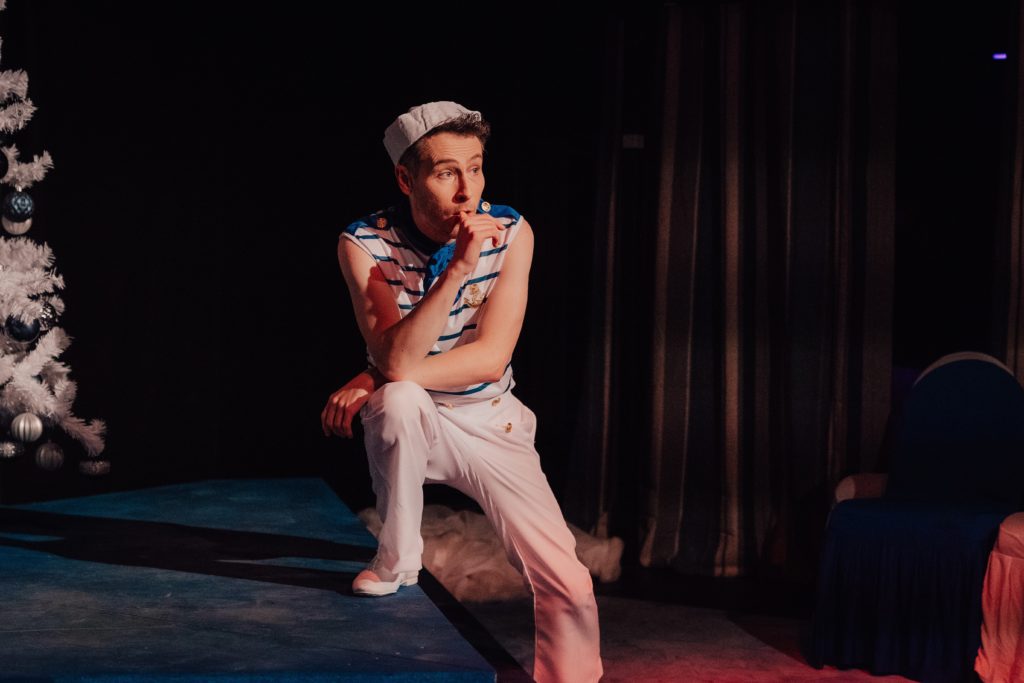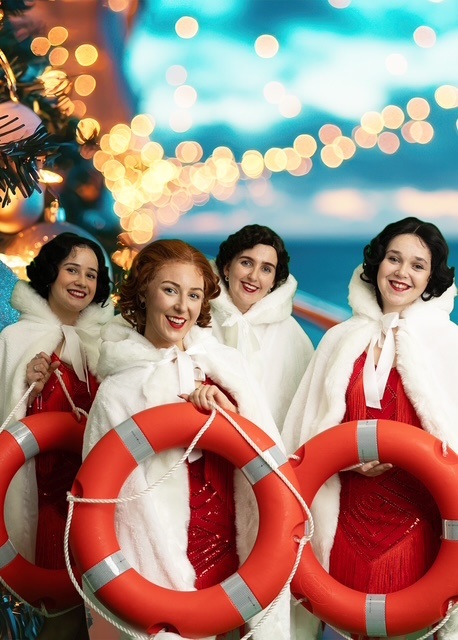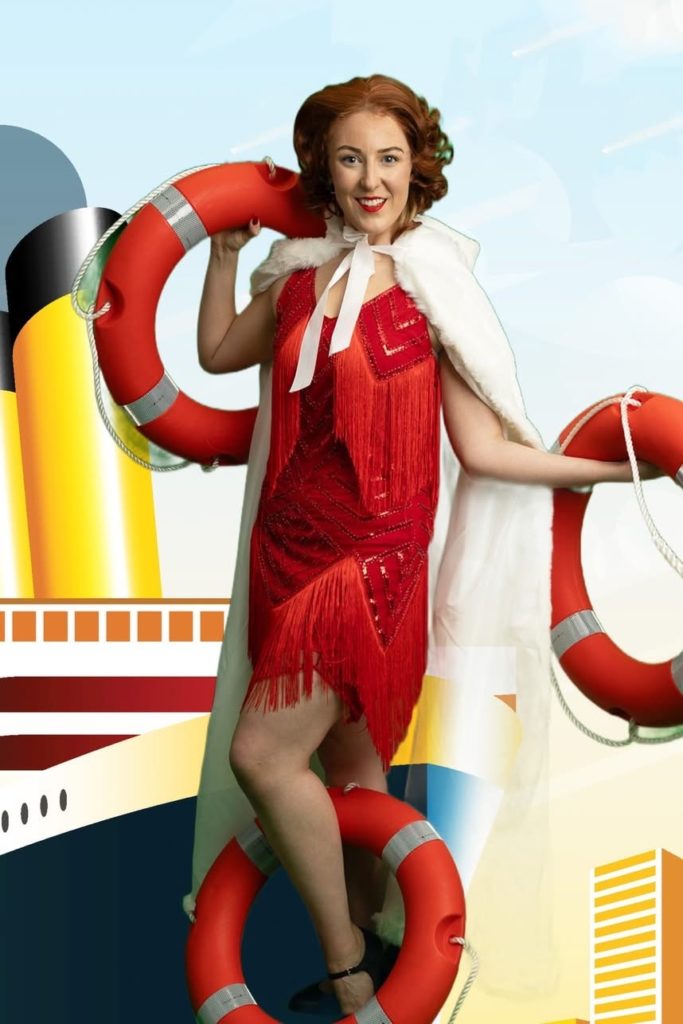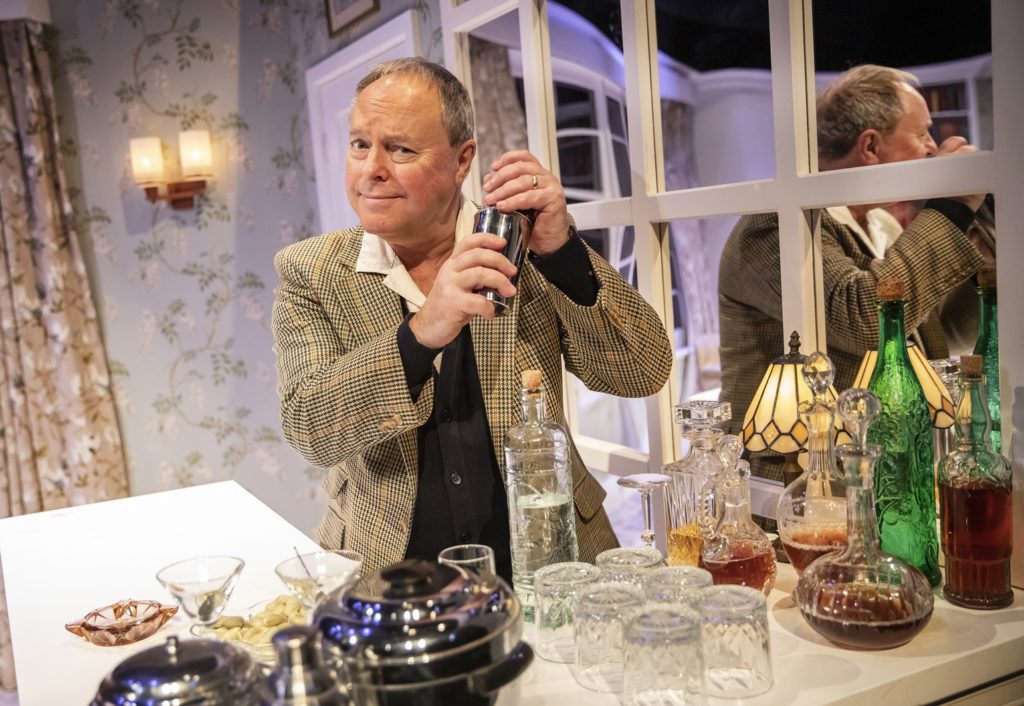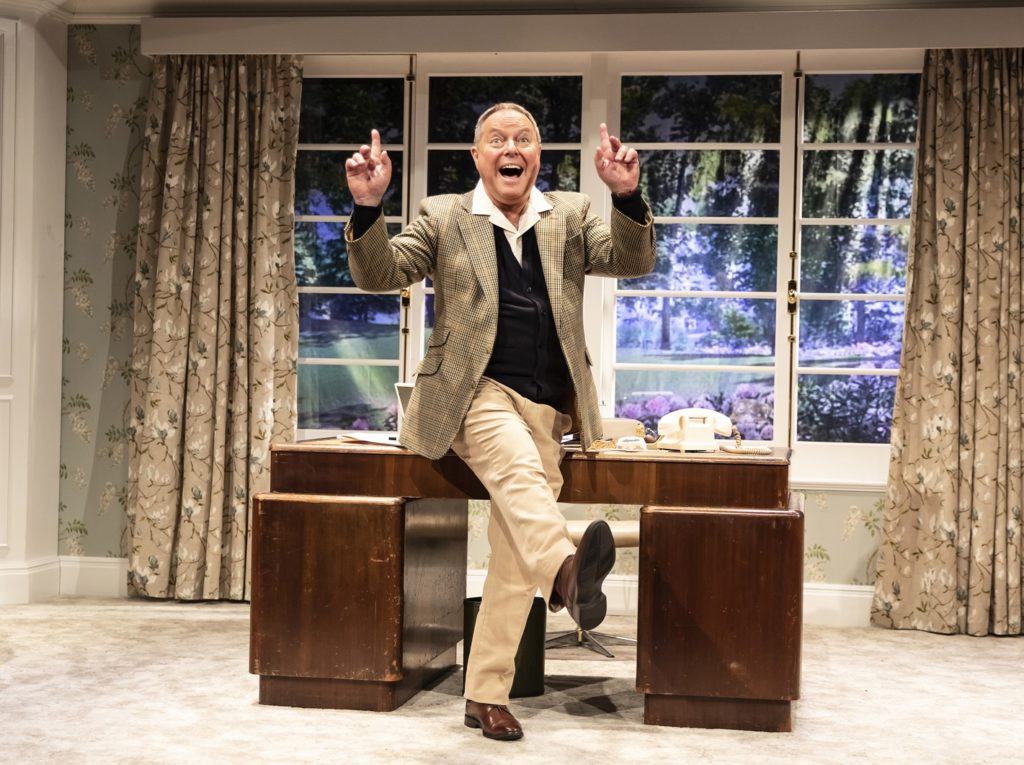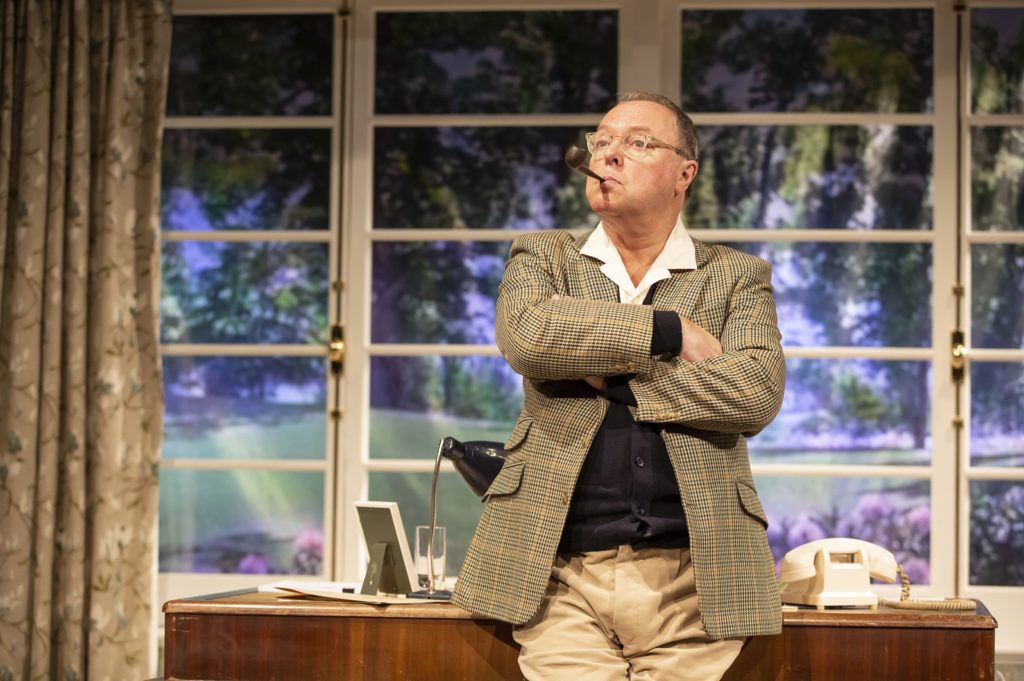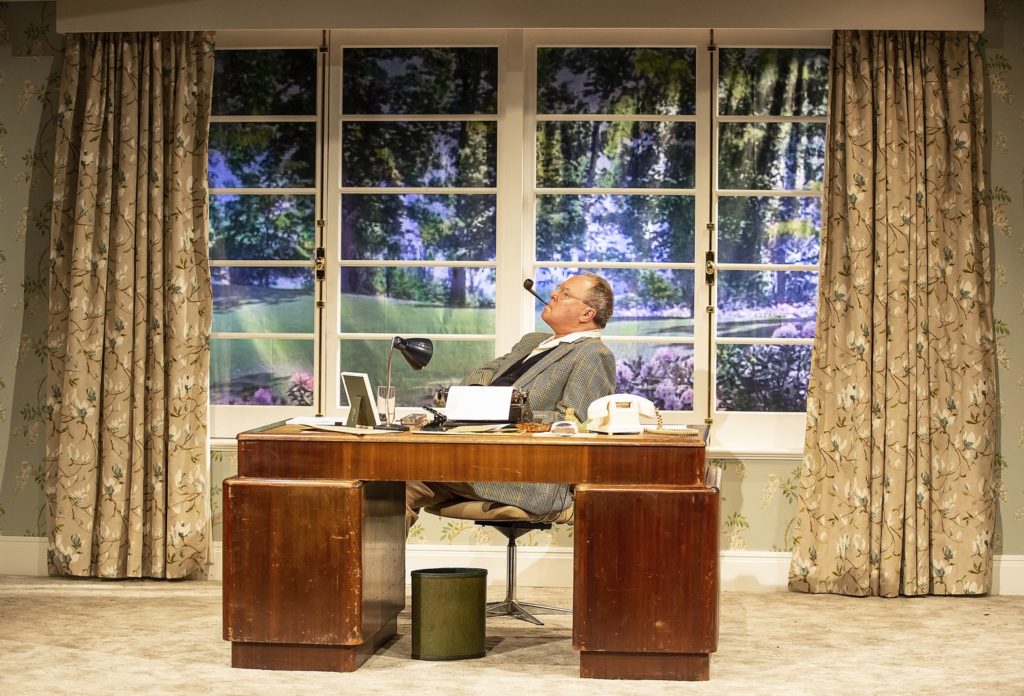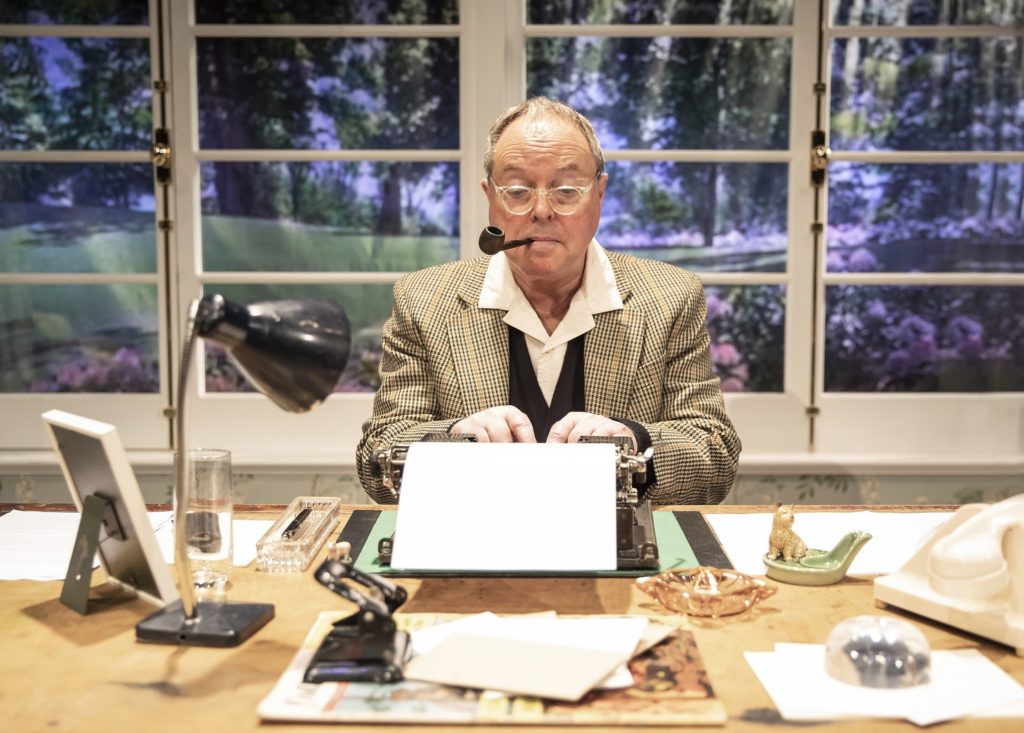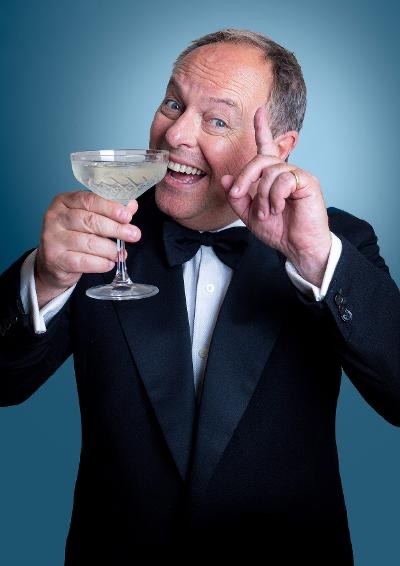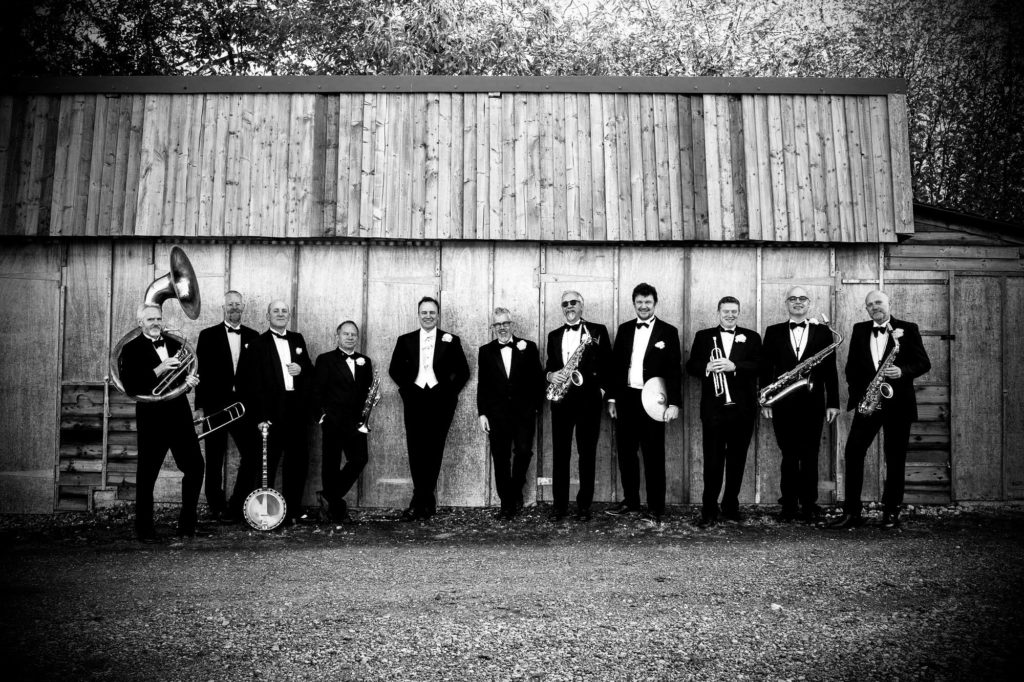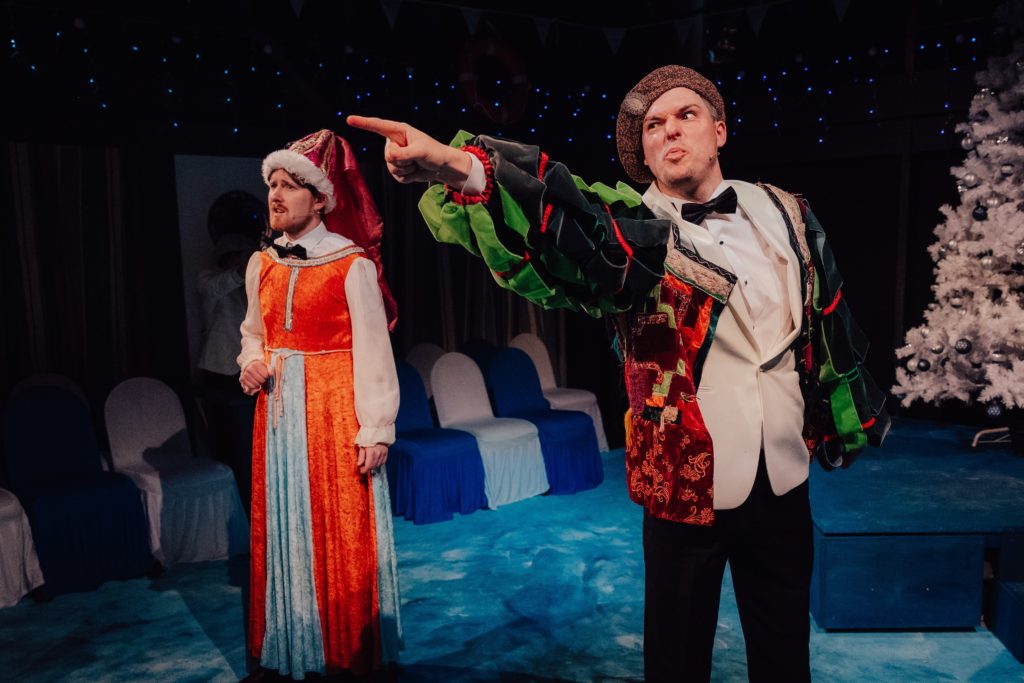
Fergus Powell’s Moonface Martin, left, and Adam Price’s Billy Crocker in Pick Me Up Theatre’s Anything Goes at Theatre@41, Monkgate, York. Picture: Felix Wahlberg
SEEING out the old year, welcoming in the new, Charles Hutchinson refuses to advocate putting your feet up in the festive season.
All aboard for the last chances to see: Pick Me Up Theatre in Anything Goes, Theatre@41, Monkgate, York, today to December 30
CLIMB aboard the S.S. American as it sets sail in Andrew Isherwood’s all-singing, all-dancing staging of Anything Goes, Cole Porter’s swish musical, charting the madcap antics of a motley crew leaving New York for London on a Christmas-themed steamer.
Meet nightclub singer/evangelist Reno Sweeney (Alexandra Mather) and lovelorn Wall Street broker Billy Crocker (Adam Price), who has stowed away on board in pursuit of his beloved Hope Harcourt (Claire Gordon-Brown). Alas, Hope is engaged to fellow passenger Sir Evelyn Oakleigh (Neil Foster). Enter second-rate conman Moonface Martin (Fergus Powell) to join Reno in trying to help Billy win the love of his life. Box office: tickets.41monkgate.co.uk.
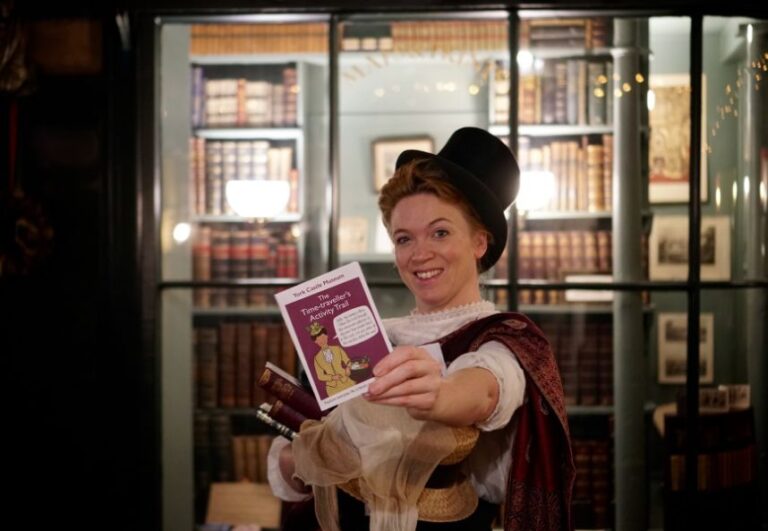
Family-friendly performances of the week: History Riot in Tales From The Trail, York Castle Museum, Eye of York, York, today (27/12/2025) to January 3, except January 1, between 10am to 5pm daily
HISTORY Riot return to York Castle Museum with Tales From The Trail, an array of family-friendly performances, with start times being advertised at the admissions desk each day. Join two madcap Victorian characters for an urgent shopping trip on the Victorian street of Kirkgate this festive season.
Cue mystery, silliness and stories of the variety of items that they pick up along the way. Entry is included in general admission at https://beta.yorkmuseumstrust.org.uk/york-castle-museum/admission-tickets.

The billboard poster for The Tubs & Bull’s co-headline show at The Crescent, York
Double bill of the week: The Tubs and Bull, The Crescent, York, tonight, 7.30pm
IN A Please Please You Seasonal Rock’n’Roll Party, The Tubs and Bull team up for a co-headline show, featuring Dan Lucas at the double, complemented by some friends DJing in the bar.
Cardiff indie rock band The Tubs comprises Lucas, Owen Williams, Max Warren and Taylor Stewart; York alt. rock band Bull features songwriting frontman Tom Beer, guitarist Lucas, drummer Tom Gabbatiss, bassist Kai West and keyboard player and vocalist Holly Beer. Box office: thecrescentyork.com/events/the-tubs-bull/.
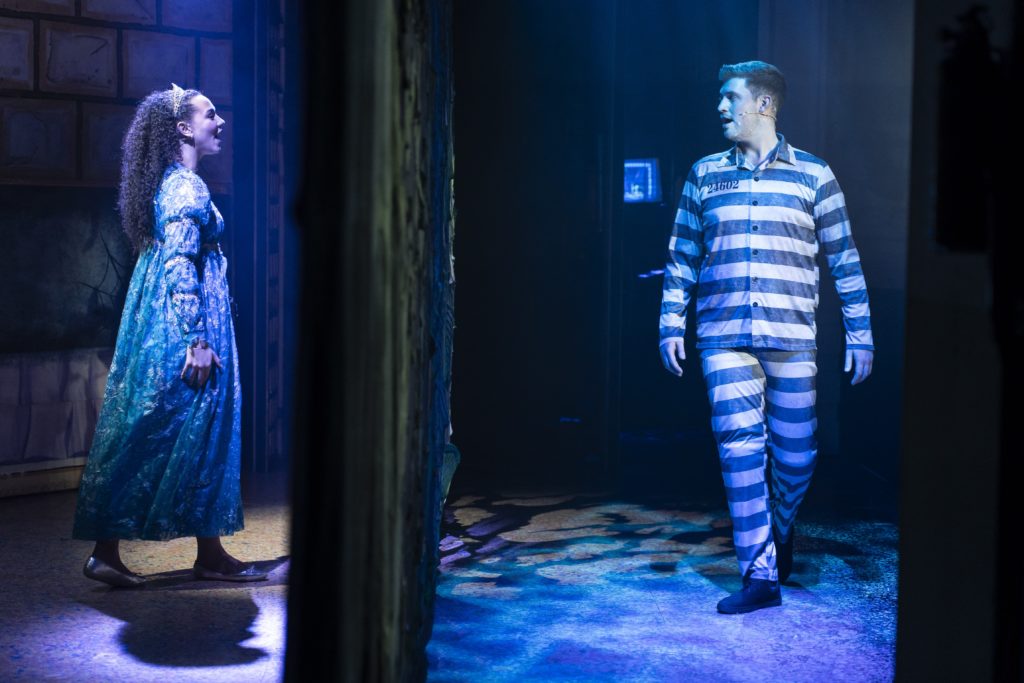
Aoife Kenny’s Aurora and Christian Mortimer’s Prince Michael of Moravia in Sleeping Beauty at York Theatre Royal. Picture: S R Taylor Photography
Still time for pantomime: Sleeping Beauty, York Theatre Royal, until January 4
YORK Theatre Royal creative director Juliet Forster directs returnee dame Robin Simpson’s Nurse Nellie, Jocasta Almgill’s Carabosse, Tommy Carmichael’s Jangles, CBeebies star Jennie Dale’s Fairy Moonbeam, Aoife Kenny’s Aurora and Harrogate actor Christian Mortimer’s Prince Michael of Moravia in Sleeping Beauty.
Written as ever by Paul Hendy, the Theatre Royal’s festive extravaganza is co-produced once more with award-winning Evolution Productions. Look out too for Kris Madden’s pyrotechnics: he indeed the fire starter, twisting, turning fire starter. Box office: 01904 623568 or yorktheatreroyal.co.uk.
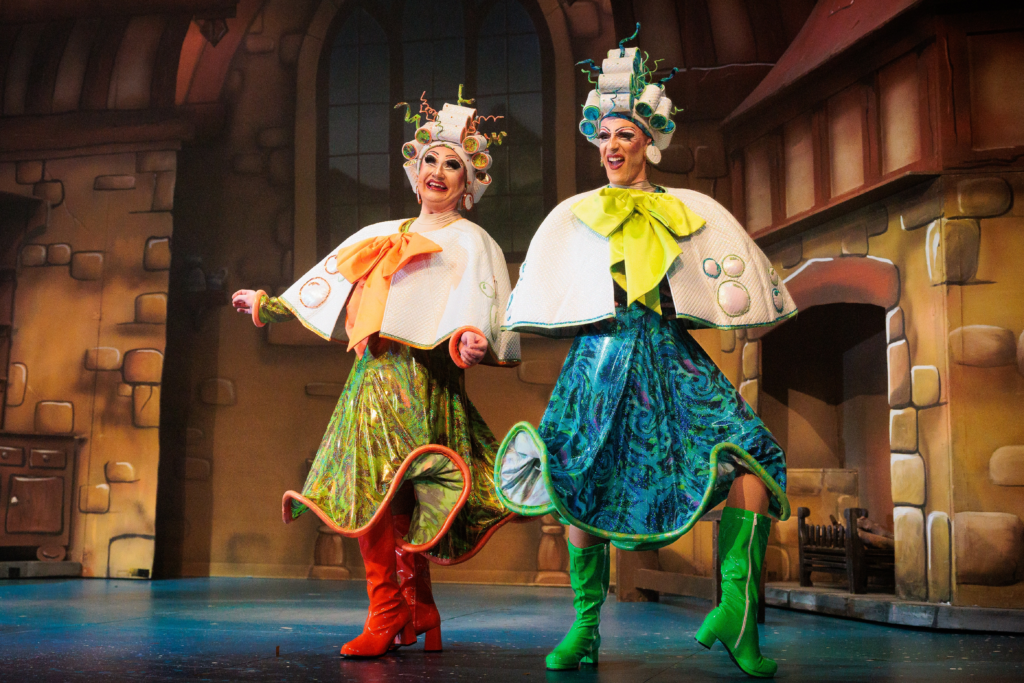
Turning ugly: Luke Attwood’s Melody Hard-Up and Brandon Nicholson’s Harmony Hard-Up in UK Productions’ Cinderella at the Grand Opera House, York. Picture: Charlie Kirkpatrick
Still time for more pantomime: Cinderella, Grand Opera House, York, until January 4
CORONATION Street star Lisa George’s Fairy Godmother leads the Grand Opera House pantomime cast, joined by Tobias Turley (ITV’s Mamma Mia I Have A Dream) as Prince Charming and West End star Rachel Grundy (Rocky Horror Picture Show, Legally Blonde) as Cinderella in UK Productions’ Cinderella, scripted by award-winning Jon Monie.
Directed by Ellis Kerkhoven, West End drag stars Luke Attwood and Brandon Nicholson double down on the rather saucy mayhem in Ugly Sisters mode, joined in the capering comedy corner by Jimmy Bryant’s Buttons. Box office: atgtickets.com/york.
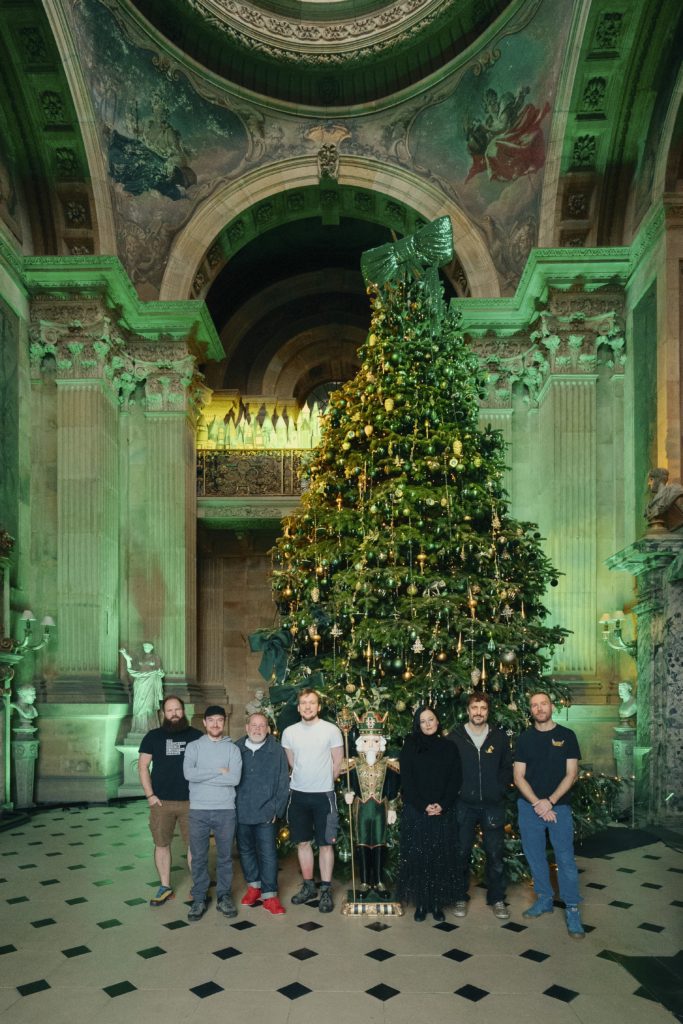
The creative team behind The Wonderful Wizard Of Oz at Castle Howard. Picture: Tom Arber
The Yellow Brick enters the home straight: The Wonderful Wizard Of Oz, Castle Howard, near York, until January 4
CASTLE Howard is transformed for winter into an immersive Christmas experience, dressed in set pieces, decorations, floristry, projections, lighting and sound for The Wonderful Wizard Of Oz.
Created by CLW Event Design, headed up by Charlotte Lloyd Webber and Adrian Lillie, the show-stopping Emerald City High Street in the Long Gallery is the highlight, with life-size fabricated shop fronts inspired by York’s Shambles, while the 28ft Christmas tree sparkles in the Great Hall. Leeds theatre company Imitating The Dog provides the spectacular projections and soundscapes. Tickets: castlehoward.co.uk.
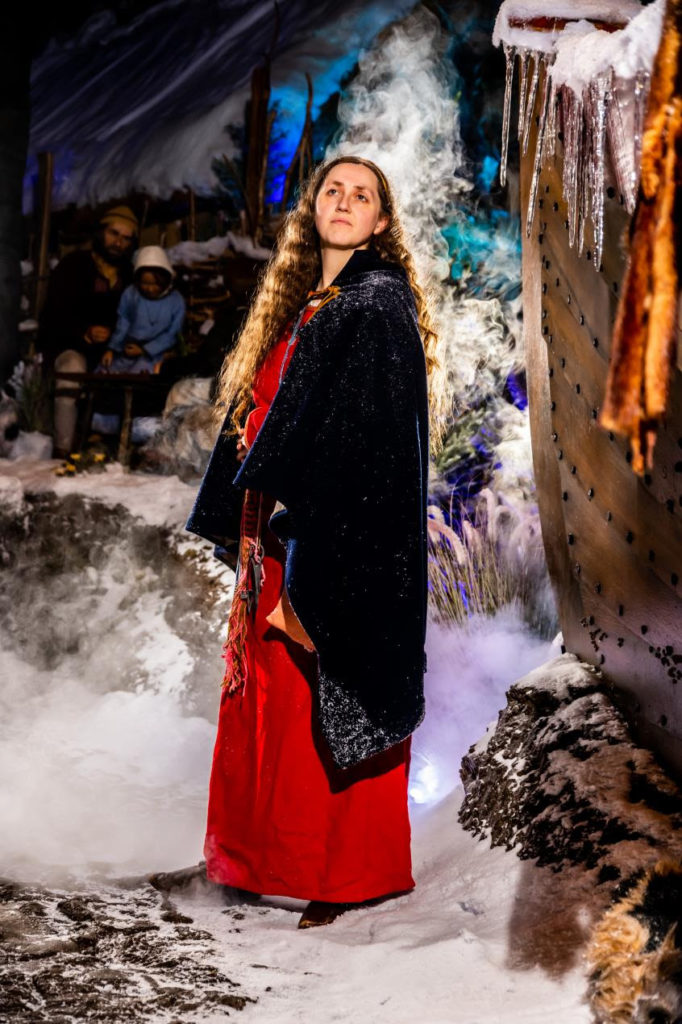
Snow show in A Winter Adventure at JORVIK Viking Centre
Deep freeze: A Winter Adventure at JORVIK Viking Centre, York, until February 22 2026
A WINTER Adventure brings a new wintery experience to the underground York visitor attraction, where the 10th century Vikings are celebrating Yule with natural decorations hung on their houses. For the first time, visitors can peer through Bright White’s time portal into the blacksmith’s house excavated on this site in the 1970s, seeing what it would have been like to live there.
They will then board a time sleigh to travel back in time around the backstreets, transformed by Wetherby set dressers EPH Creative, who have covered streets and houses in a thick blanket of snow, bathed in cold blue lighting. Pre-booking is essential for all visits to JORVIK at jorvikvikingcentre.co.uk.
Fever presents: Candlelight: Best Of Bridgerton On Strings, National Centre for Early Music, Walmgate, York, January 3, 6.30pm; Candlelight: Tribute To Queen & More, 8.30pm
DEAREST Reader, Lady Whistledown has given her verdict: the event of the season is here! Bathed in the soft glow of candlelight, favourite melodies from Shondaland’s Bridgerton series on Netflix are re-imagined by the New World String Quartet in a magical 60-minute performance of Candlelight: Best Of Bridgerton On Strings.
Later that same night, Candlelight presents the music of Queen and More in a live, hour-long multi-sensory musical experience featuring We Will Rock You, Somebody To Love, Radio Ga Ga, Killer Queen, We Are The Champions, Another One Bites the Dust, Bohemian Rhapsody and many more. Box office: support.feverup.com.
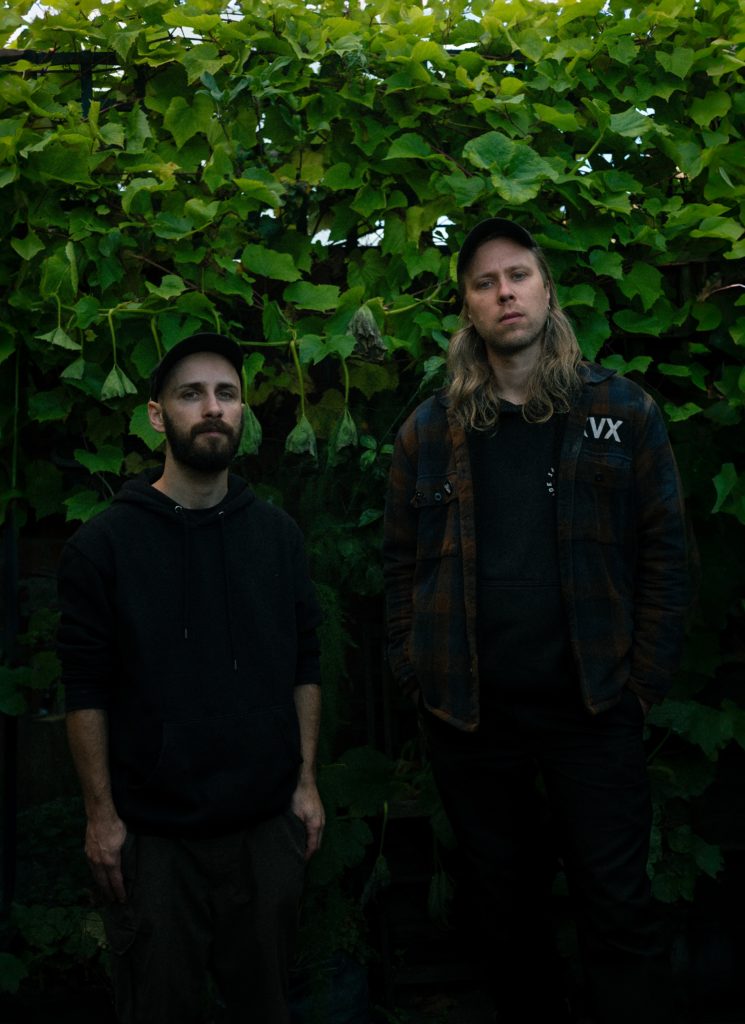
Ancient Hostility: Passionate political and personal song in harmony at Navigators Art’s A Feast Of Fools III
Navigators Art presents A Feast Of Fools III, The Black Swan Inn, Peasholme Green, York, January 4, 7.30pm, doors 7pm
WELCOME to A Feast Of Fools III, York arts collective Navigators Art’s sign-off to “Holiday’s end – the last gasp of Mischief” in a celebration of Twelfth Night and Old Christmas packed with live folk music and a nod to the pagan and the impish.
On the bill will be: Ancient Hostility, performing passionate political and personal song in harmony; North West folk duo Joshua Arnold and Therine, presenting vocal-led trad and experimental versions of British folk songs; Pefkin, whose ritualistic hymnals draw heavily on the landscape and the natural world, and White Sail, York’s multi-instrumental alt-folk legends. Box office: www.ticketsource.co.uk/navigators-art-performance.

Pickering Musical Society’s principal panto players for Snow White at Kirk Theatre, Pickering
First panto of the New Year: Pickering Musical Society in Snow White, Kirk Theatre, Pickering, January 14 to 25, 7.15pm, except January 19; 2.15pm, January 17, 18, 24 and 25
DIRECTED for the tenth year by resident director Luke Arnold and writer by Ron Hall, Pickering Musical Society’s 2026 pantomime combines comedy, spectacle, festive magic, dazzling scenery and colourful costumes.
The show features such principals as Marcus Burnside’s Dame Dumpling, Danielle Long’s Prince Valentine, Alice Rose’s Snow White, Paula Cook’s Queen Lucrecia and Sue Smithson’s Fairy Dewdrop. Audiences are encouraged to book early to avoid disappointment. Box office: 01751 474833 or kirktheatre.littleboxoffice.com.

